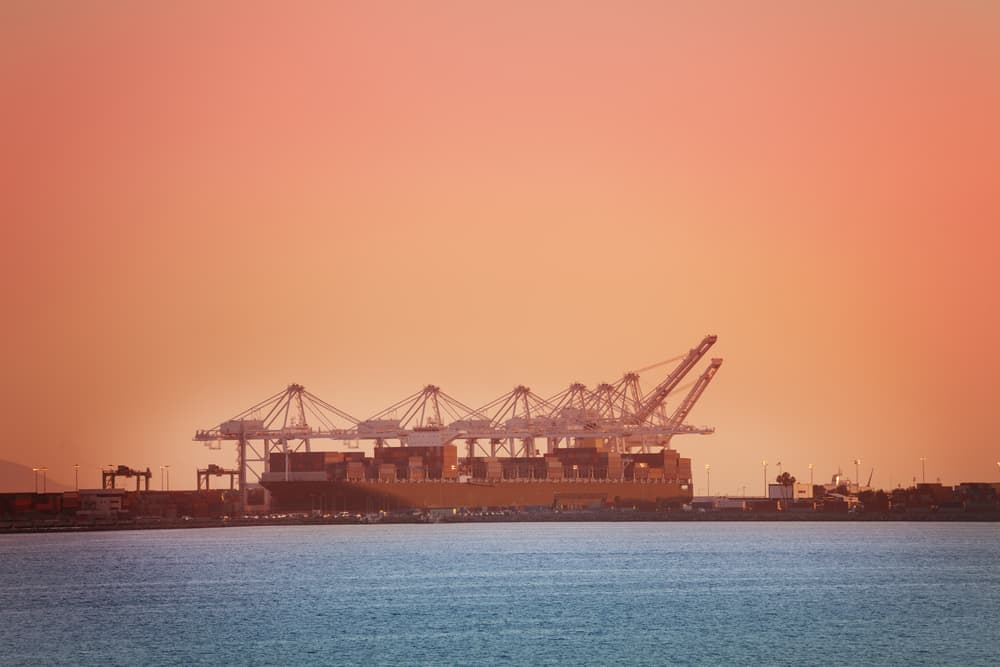According to the latest Maritime Transport Review published by the UN Trade and Development Organization (UNCTAD), maritime trade growth is projected to slow to just 0.5% in 2025 as global shipping enters a challenging period.
This marks the slowest growth rate in recent years, following a modest 2.2% growth in 2024, as the sector grapples with various challenges including geopolitical tensions and climate pressure.
Regina Asariotis, Head of UNCTAD’s Trade Logistics Branch, warned during the report’s launch in Geneva, “The global environment has become more complex. Geopolitical tensions are causing costly route changes, tariffs are disrupting trade flows, and freight rates are high and volatile.”
The shipping sector, which carries over 80% of world trade, has become a critical barometer for the health of global commerce.
Among the most prominent disruptions are the ongoing crises in the Red Sea, where ships are forced to use much longer routes, and tensions near the Strait of Hormuz. Ships that previously crossed the Red Sea in a few days now sail for weeks around the Cape of Good Hope. As of May 2025, the tonnage passing through the Suez Canal remained 70% below 2023 levels.
These route changes pushed the “ton-mile” – the distance traveled by each ton of cargo – to a record increase of 6% in 2024, an increase almost three times the real trade volume growth.
Container, bulk, and tanker freight rates remained high and volatile throughout 2024 and 2025, experiencing sharp fluctuations due to geopolitical tensions and supply-demand imbalances. The Shanghai Containerized Freight Index recorded a staggering 149% increase in 2024 compared to 2023, averaging 2,496 points, with spot rates reaching $3,600 per container in July.
The impact of this situation is felt disproportionately on fragile economies. Asariotis said, “Small island developing states, least developed countries, and net food-importing countries are the most vulnerable, as high freight costs quickly lead to more expensive imports and food insecurity.”
UNCTAD Secretary-General Rebeca Grynspan emphasized the necessity of inclusive transitions: “The transitions ahead (zero carbon, digital systems, new trade routes) must be just transitions. They should not exclude, but empower. They should increase resilience, not deepen vulnerability.”
The climate issue poses a major threat to the sector, as shipping’s greenhouse gas emissions increased by 5% in 2024. However, only 8% of the world fleet’s tonnage is currently equipped to use alternative fuels.
The International Maritime Organization will assess the Net-Zero Framework in October 2025, which will chart a course to achieve net-zero emissions by 2050 through a global fuel standard and a carbon pricing mechanism. UNCTAD states that decarbonizing shipping will require significant costs, including fleet renewal, port adaptation, and alternative fuel infrastructure.
Beyond trade and emission issues, the human factor is also critical. The report highlights that cases of seafarer abandonment reached record levels in 2024, with crews left stranded without pay and support.
This problem also affects ports.
Global ports are grappling with congestion, longer waiting times, and pressure to modernize. While UNCTAD emphasizes that investing in digital systems is an urgent need to reduce costs and delays, it also notes that many developing countries are lagging behind in digitalization.
The report outlines several priority actions, such as stabilizing trade policies to reduce uncertainty, investing in sustainable infrastructure, promoting digitalization while ensuring cybersecurity, accelerating fleet renewal to meet climate goals, and protecting vulnerable economies from the effects of high shipping costs.
Grynspan said, “Persistently high shipping costs pose a risk that will hit developing countries the hardest. Maritime transport must be resilient, inclusive, and sustainable if we are to weather the turbulent waters ahead.”
Source:





